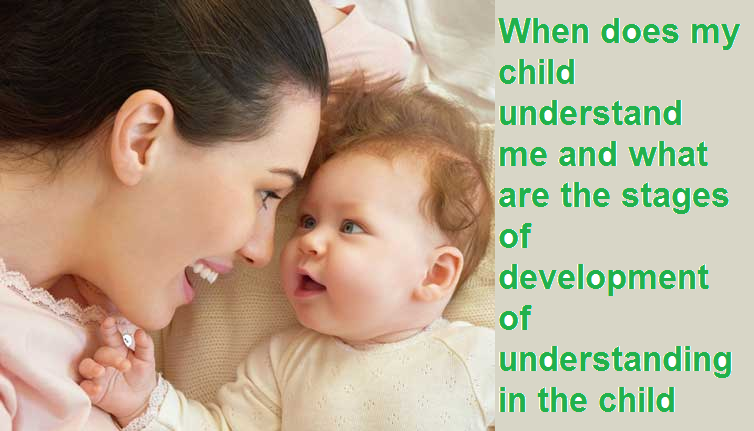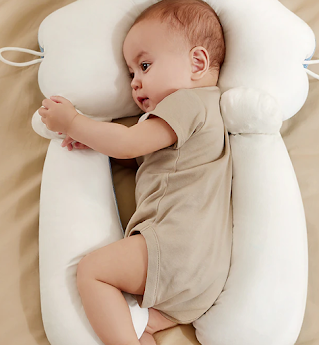When does my child understand me and what are the stages of development of understanding in the child
The language that your child learned first is the language of love. The strong bond that brought him together with you certainly must have a special language. So your child understands you from the first moment of his birth and feels you as well.
**********
After your child has completed the first 60 days of his life
His senses begin to develop little by little, and he becomes more aware of his food and sleep times, and knows the difference between morning and evening. He can also know the father, brothers, and the rest of the individuals who live with him in the same house by distinguishing sounds, the way he plays, and talks.
----------------------------------------Home Doctor – BRAND NEW!
https://bit.ly/3jwMFBW ------------------------ ------------
After your child completes his third month, he starts laughing with giggling sounds, he loves to play a lot and quickly integrates with the people around him, the movement begins and he turns to you when you call him by his name, he knows his name well now and he can also distinguish between the feelings of your face and if you show feelings of joy or Anger, anxiety, or other emotions that may appear on your face, he understands those expressions well, perhaps more than anyone else.
---------------------------------------------
From the eighth or ninth month until your child completes his first year, your child begins to understand some of the words that you direct to him, and he also begins to know your recommendations for each of his actions. Carrying food to his mouth correctly, you have to encourage him and applaud him while showing signs of joy and pleasure on your face, but if he throws food on the ground or carries it wrongly, you have to tell him that this behavior is wrong, but without scolding him, he is still a young child in the learning stage
------------------Home Doctor – BRAND NEW!
https://bit.ly/3jwMFBW ---------------------
At this age, from 12 to 18 months
Your child may respond to commands, and this depends from one child to another, but in any case, the stage of responding to commands will not be less than a year and will not increase beyond a year and a half. He may make mistakes and he may be right, and it is something that is possible, you just have to encourage him after responding to orders so that he can be encouraged to respond to other orders.
------------------Home Doctor – BRAND NEW!
https://bit.ly/3jwMFBW ---------------------
At that stage, the child begins to repeat the word “No” a lot. Be patient and be wise and do not be irritable until that stage passes peacefully. At that stage, the child can also express himself. Instead of crying, the child will ask you to feed him or ask for a drink or express his opinion on something. What.
Subscribe to the channel and activate the alerts button
https://www.youtube.com/channel/UC7pMwb1amloZATmBwlmOdLw
------------------------------
Join our Facebook page
https://www.facebook.com/profile.php?id=100076431908573
------------------------------------------------
Read more on our site
https://www.babyandmylife.com/
--------------------------------
Follow us on Instagram
https://www.instagram.com/pregnancy1237/
***********************
Read the full article on the title site below the video
https://www.babyandmylife.com/
***********************












